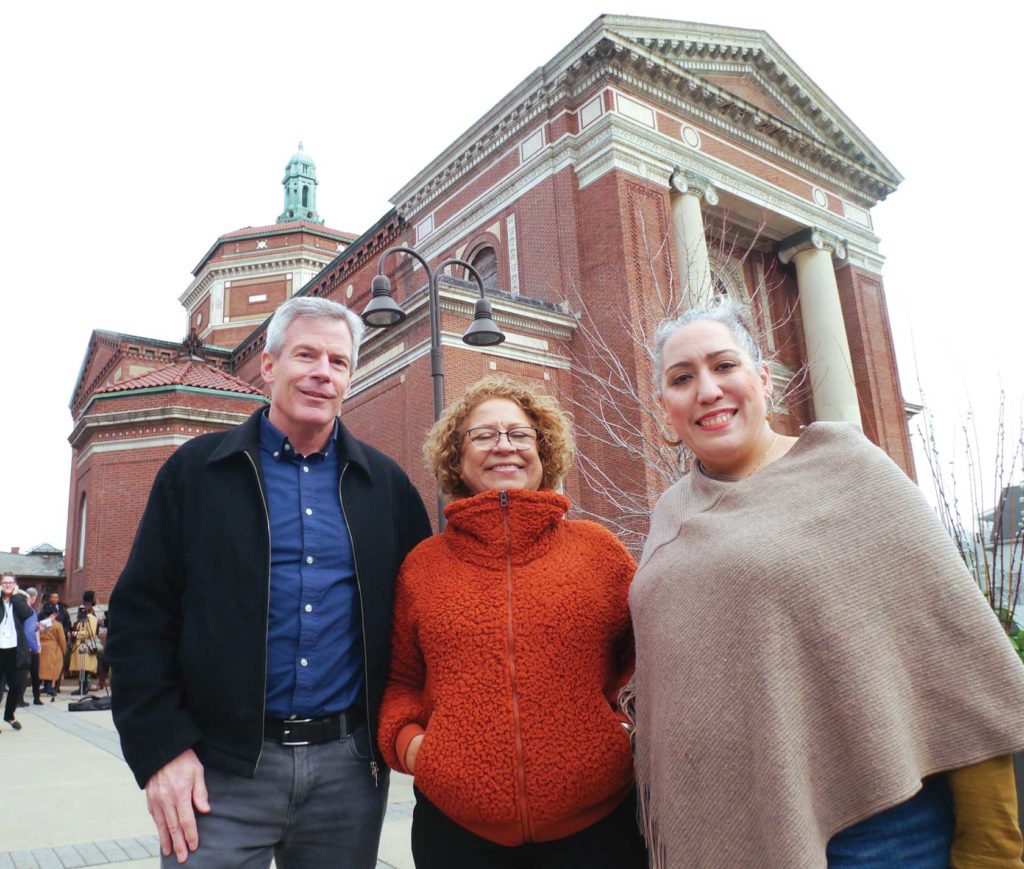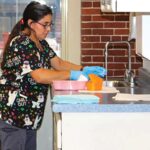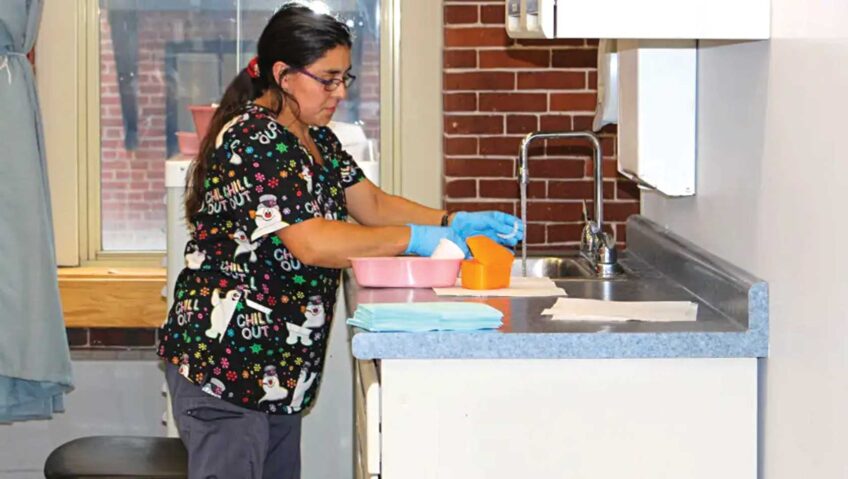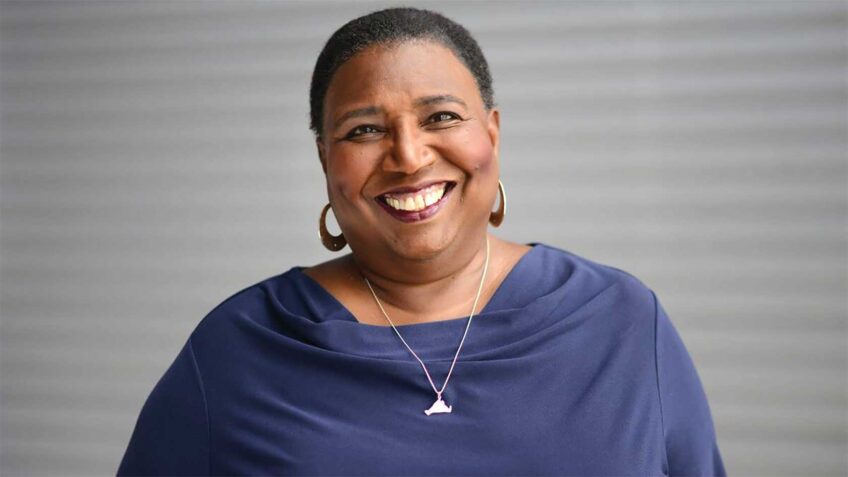Affordable housing set for Blessed Sacrament
Redevelopment calls for 55 mixed-income units, 200-seat performing arts space

Vanessa Snow was a youth organizer for the Hyde Square Task Force (HSTF) when the Archdiocese of Massachusetts announced it was closing the Blessed Sacrament Church in 2005. Snow and other teens working at the Jamaica Plain youth-focused nonprofit knew what they wanted to happen there.
“We had been advocating for a youth center,” she said. “We knew the whole Blessed Sacrament campus would be redone.”
It’s taken 17 years, but now it appears that dream will come to fruition. City officials, affordable housing advocates and community members gathered last Thursday in front of Blessed Sacrament as Mayor Michelle Wu announced $67 million in funding for affordable housing — including $6.25 million for the Blessed Sacrament project. Penrose Development plans to construct a mixed-income apartment complex inside the church building with 55 residential units and a 200-seat performing arts space that will be managed by the Task Force.
District 6 City Councilor Kendra Lara, who was a youth community organizer at HSTF in the early 2000s, told reporters and community members gathered Thursday that she was moved by the announcement that the church building would be developed in keeping with the organization’s original intent.
“This is an incredibly, incredibly emotional moment for me,” Lara said, “especially as a Hyde Square Task Force kid and as a neighborhood kid who stands here, not only as your elected official, but as the chair of the Housing Committee, to be celebrating alongside the mayor and alongside her administration and all of our community partners.”
While HSTF acquired and moved into the building of the former Cheverus School on the campus back in 2006, the fate of the church building remained uncertain. After Snow and other community members pressed the Archdiocese to not sell the building to a for-profit developer, the Jamaica Plain Neighborhood Development Corporation acquired it, seeking to partner with a for-profit developer and build a mixed-income development.
While other properties on the campus were developed, JPNDC skuttled its plans to develop the church. Then the Hyde Square Task Force acquired the building, seeking to develop the sanctuary as a community performing arts space. Unable to amass the financing to renovate the space, the nonprofit put Blessed Sacrament on the market in 2020.
By then Snow, well into adulthood, wasn’t ready to give up. She and other neighborhood residents and HSTF alums founded Friends of Blessed Sacrament and pressured the nonprofit to stay true to its original vision for the property.
“This is what the community wanted,” said Harry Smith, who worked alongside Snow as part of the Friends group. “The city stepped in to invest. It could have gone a different way. Luxury condos would have been a shame.”
Citywide goals
The Blessed Sacrament redevelopment is one of 17 projects citywide that are part of the city’s new $67 million commitment, funded in part with American Rescue Plan Act dollars. Wu told reporters the funding is expected to support the creation or preservation of 800 units of income-restricted housing.
“These projects will include units for rent and homeownership,” she said. “They include affordable housing, senior housing, supportive housing, they rely on partnerships with for-profit and nonprofit developers and will be built on public and private lands. So we’re really trying to put everything on the table.”
Wu noted that as the one-time ARPA funds run out, the city will be looking to continue funding affordable housing creation with new revenue sources, including a real estate transfer tax. Members of the Boston delegation to the State House filed legislation for Boston to be able to assess such a tax, which, under the Wu administration proposal, would amount to 2% levied on real estate sales of $2 million and up. If passed, the tax is expected to raise more than $100 million a year.
While lawmakers did not pass the legislation last year, Wu expressed hope it will pass this year.
“We are really grateful for the partnership with the Boston delegation in renewing that call this session,” Wu said.







